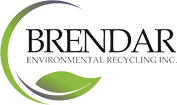Outlined below are common examples of household waste chemicals that are handled at most HHW collection events. However, each Depot may collect different types of materials and it is recommended that residents confirm what materials are accepted at their local depot prior to arriving at the site.
Household chemicals can react and pose health & safety concerns. Therefore, to minimize risk to you, your family and vehicle, please ensure that the materials are stored in sealed containers, segregated into compatible groups, and maintained in an upright position while transporting. Please do not put all your household chemicals into a garbage bag – they are not all the same and this can be an accident waiting to happen.
Automotive Related: motor oil, transmission fluid, antifreeze, brake fluid, fuel, lead acid batteries, polishers, cleaners, waxes, aerosols, paints solvents, and body filler.
Household Related: medicines, pharmaceuticals, drugs, all cleaners, waxes, furniture polishes, bleach, soaps, pesticides, disinfectants, household batteries, hobby paints, stain removers, needles (see below)
Yard and Garden: pesticides (herbicides, insecticides, rodenticides, fungicides, fertilizers, fertilizers with pesticides, oil and fuel from yard equipment.
Maintenance Related: paints, stains, solvents, adhesives, glues, flux/solder, light ballasts (see below), deck cleaner, wood preservatives, and caulking
Pool / Hot Tub: pool chemicals (pH up, pH down, stabilizer, chlorination, brominator, cleaners.
Hobby: gold electroplating solutions; artist paints – heavy metal paints/pigments; pottery – heavy metal glazes.
Light Ballasts: These materials are not received at all HHW facilities. Ballasts made in 1979 or earlier may contain traces of PCB's and should be considered hazardous due to this concern. Newer ballasts are often marked "non-PCB's" shown in small print on the label and as such are not hazardous.
Needles/Sharps: These are needles used by diabetics for example. In the waste industry they are referred to as a biohazardous waste material. They can be received at some sites however they should be securely packaged in a hard plastic sealed container. Loose needles will not typically be received. Call to be sure your HHW centre can receive these items.
Materials NOT typically accepted at HHW Depots
Explosives, Flares, Ammunitions, Fireworks: These are materials that CAN NOT be received at most HHW events. For proper disposal contact your local police or Ontario Provincial Police (OPP). Explosives should not be transported without first contacting the OPP Special Tactics Unit found in the Blue Pages of your phone book.
Smoke Detectors: Some smoke detectors contain a minute amount of radio-active material. Contact your local Ministry of the Environment (MOE) office for details on disposal options.


